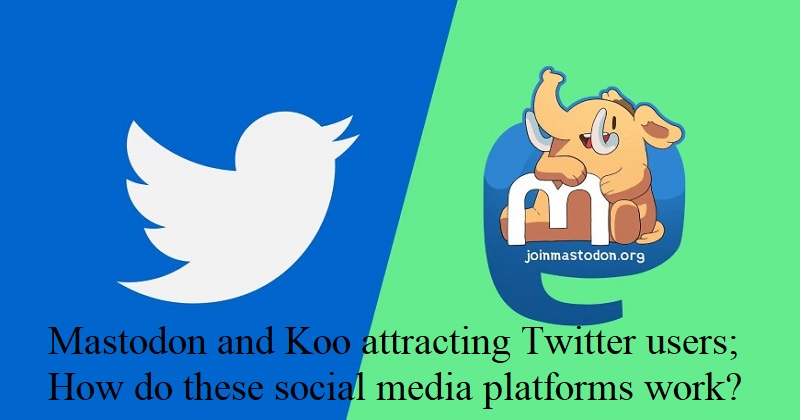
Many of Twitter’s members have defected to other social media networks since since the billionaire Elon Musk formally assumed control of the company. The two platforms that have benefited most are Koo and Mastodon. Apparently, Mastodon, a decentralised, ad-free social networking site, currently has 655,000 users, with an enormous influx of 230,000 people occurring in the previous few weeks alone.
Mastodon, which was established about six years ago, resembles Twitter in terms of appearance and functionality but differs from it in a number of important ways. Mastodon is not controlled by a single person or business, in contrast to other social media sites. Decentralization allows for the creation of private networks employing servers located in several nations. Visit the Communities page on Mastodon and select a community to join in order to begin using the service. In certain cases, anybody can join, and in others, an administrator-approved server invitation is needed.
However, one of the worst criticisms of Mastodon is that the site administrators ban anyone who dared to express disagreement with their beliefs. The platform is allegedly run by leftist moderators, as the right-wingers have frequently claimed. Mastodon is the worldwide alternative to Twitter, but Koo, an Indian version of the service, is once again making headlines. Last week, the Indian social media startup reported crossing 50 million downloads. The business also mentioned a notable increase in time spent and engagement with the app. Ten languages are presently supported.
Koo’s logo is a bird, much like Twitter’s, however it’s yellow. It permits users to make remarks using the @ or hashtag (#) symbols. The programme also gives users the option to converse rather than send a direct message by using Koo’s equivalent of a retweet, or ‘re-koo’. Aprameya Radhakrishna and Mayank Bidawatka, both MBA (business management) graduates, formed the company Koo. The two also founded Vokal, an audio-video knowledge-sharing website that resembles Quora.
Since Musk stated that Twitter will charge $8 for the blue check verification symbol, some users have voiced their worries, according to WION. The news of a premium membership seems to be the deciding factor for many users who had been considering leaving the network after Musk’s takeover. The deployment of Musk’s paid membership plan, according to a number of sources, has been postponed until after the US midterm elections.

Post Your Comments